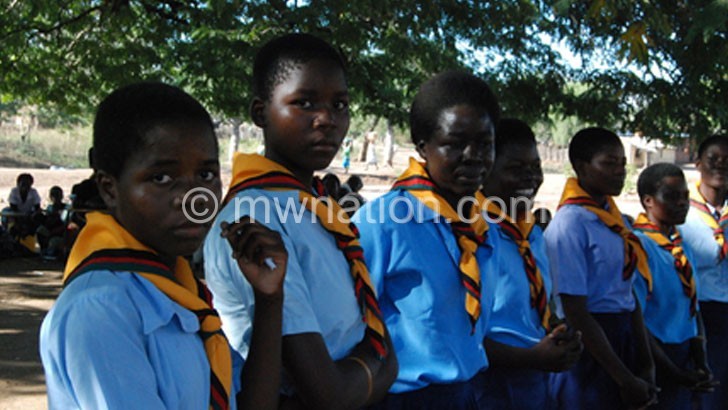Saving girls from marriages
Child marriages in Malawi are rampant. According to the 2015 Malawi Demographic and Health Survey, about of 48 in every 100 women marry before their 18th birthday.
For most of those who marry before the legal marriage age, the roads lead one way—out of school. However, many teen mothers carry the shame of sex out of wedlock as they plunge into poverty.

“Ending child marriages and keeping every girl in school until her dreams are fulfilled is essential to ensuring that girls reach their full ability and exercise their human rights. Although both girls and boys fall prey to child marriages, girls are disproportionally affected,” says Anderson Chikalipo, from Youth Net and Counselling (Yoneco).
Chikalipo leads Yoneco’s Marriage: No Child’s Play project to empower the youth to remain in school until they are old enough to decide when to marry.
Yoneco is implementing the project in traditional authorities (T/As) Namavi and Makanjira in Mangochi as well as Zulu in Mchinji.
Sakina, from Namaraka Village in T/A Namavi, suffered the agonies of child marriages, having married a man twice her age who lured her into a sexual relationship using a smartphone.
She calls for a change of mindset in all communities to protect rights of children and the youth.
“All my contemporaries had boyfriends whom they were having sex with and they were bragging about it. I wanted to try it out,” says the young woman who dropped out of school when she was in Standard Seven.
Sakina did not hesitate when the man offered her a smartphone in exchange for sex.
However, when she became pregnant and left school, the man rejected her and migrated to South Africa—leaving her dejected.
The unplanned pregnancy forced her to go back to her parents.
In Namaraka, John Francis promotes the project safeguarding the youth from risky sexual relationships and senstises them to their reproductive rights.
He blames lyogo, nocturnal dance festivals in which men and women dance seductively, for fuelling child marriages in the Yao-speaking zone.
“It is a sex festival which promotes promiscuity and trans-generational sex among the youth. Girls end up having unprotected sex that leads to unintended pregnancies and marriages,” Francis said.
According to group village head Namaraka, lyogo literally means ‘kusamba’ or bathing. The night-long dance is held the day girls take a bath after undergoing chinamwali, an initiation ceremony marking transition from girlhood to adulthood
The traditional leader is worried that teen pregnancies and child marriages are common because girls want to “taste a man” after coming out of the initiation ceremony.
“Gradually, the situation is improving due to interventions from stakeholders such as Yoneco. Men now fear to lure minors into sex,” says the traditional leader.
Chiefs in the area now punish parents who push underage girls into arranged and forced marriages.
Amos Maonga is a male champion and chairperson of Mbachundu Youth Club in Mchinji.
The club has rescued 17 young girls who were married off and convinced them to return to school, he said.
“The main factor trapping girls in the web of teen marriage are peers. They want to try out what they hear from their agemates,” he says. n





